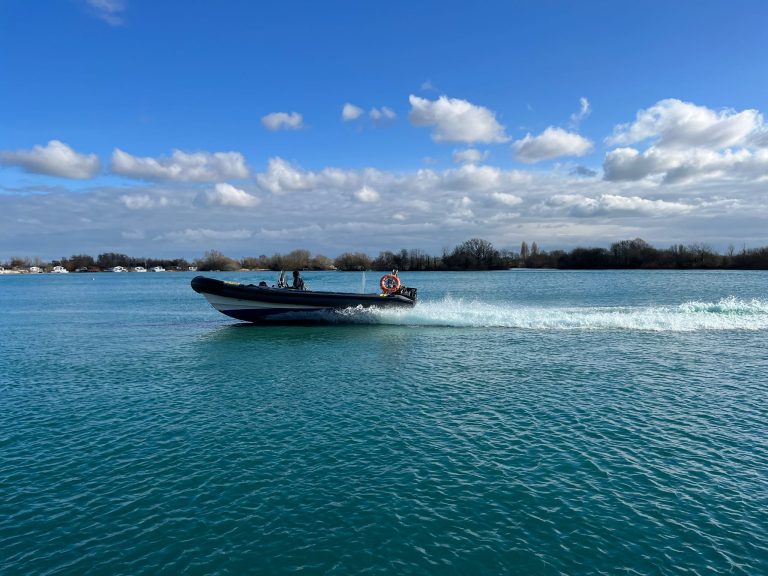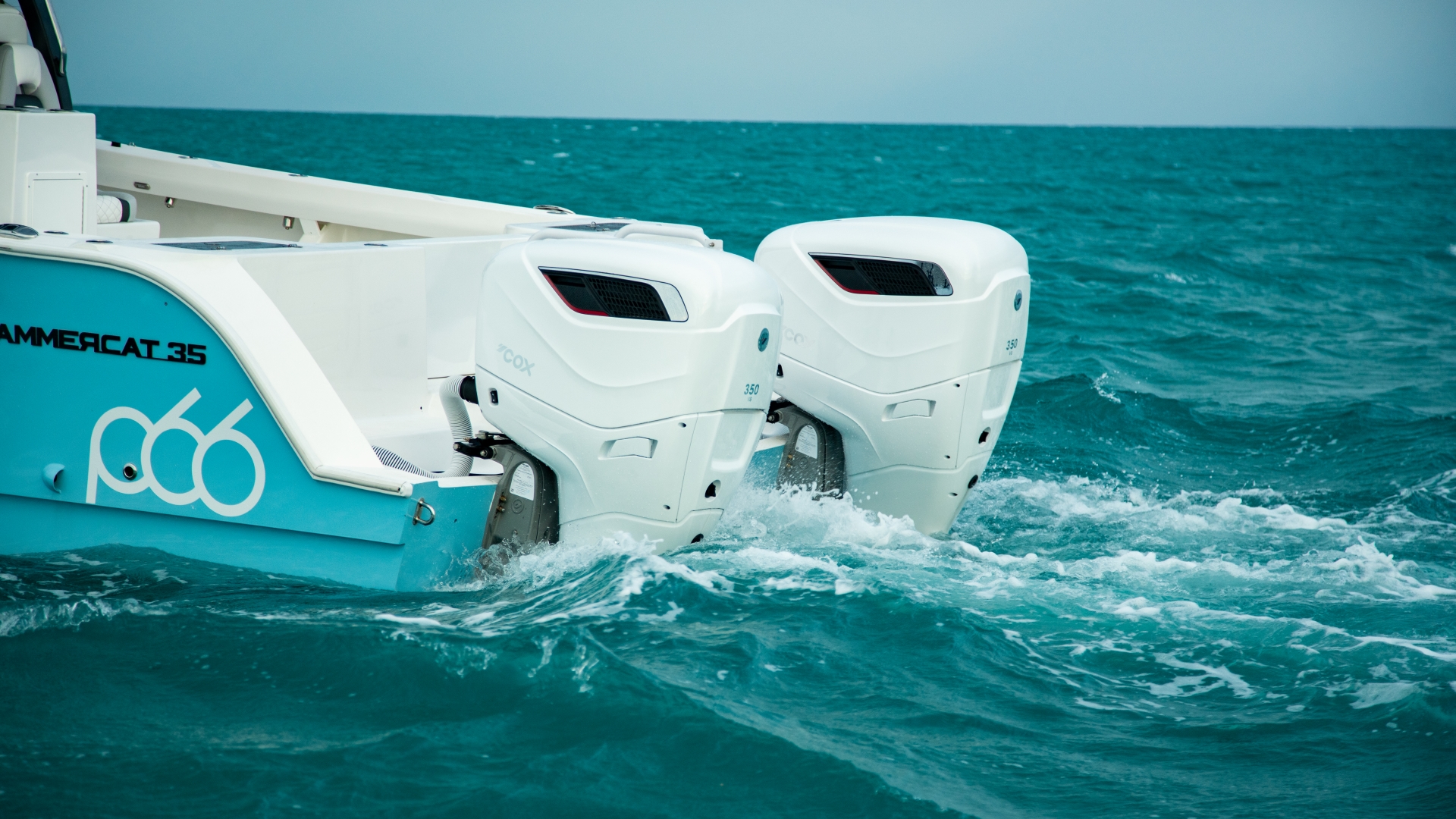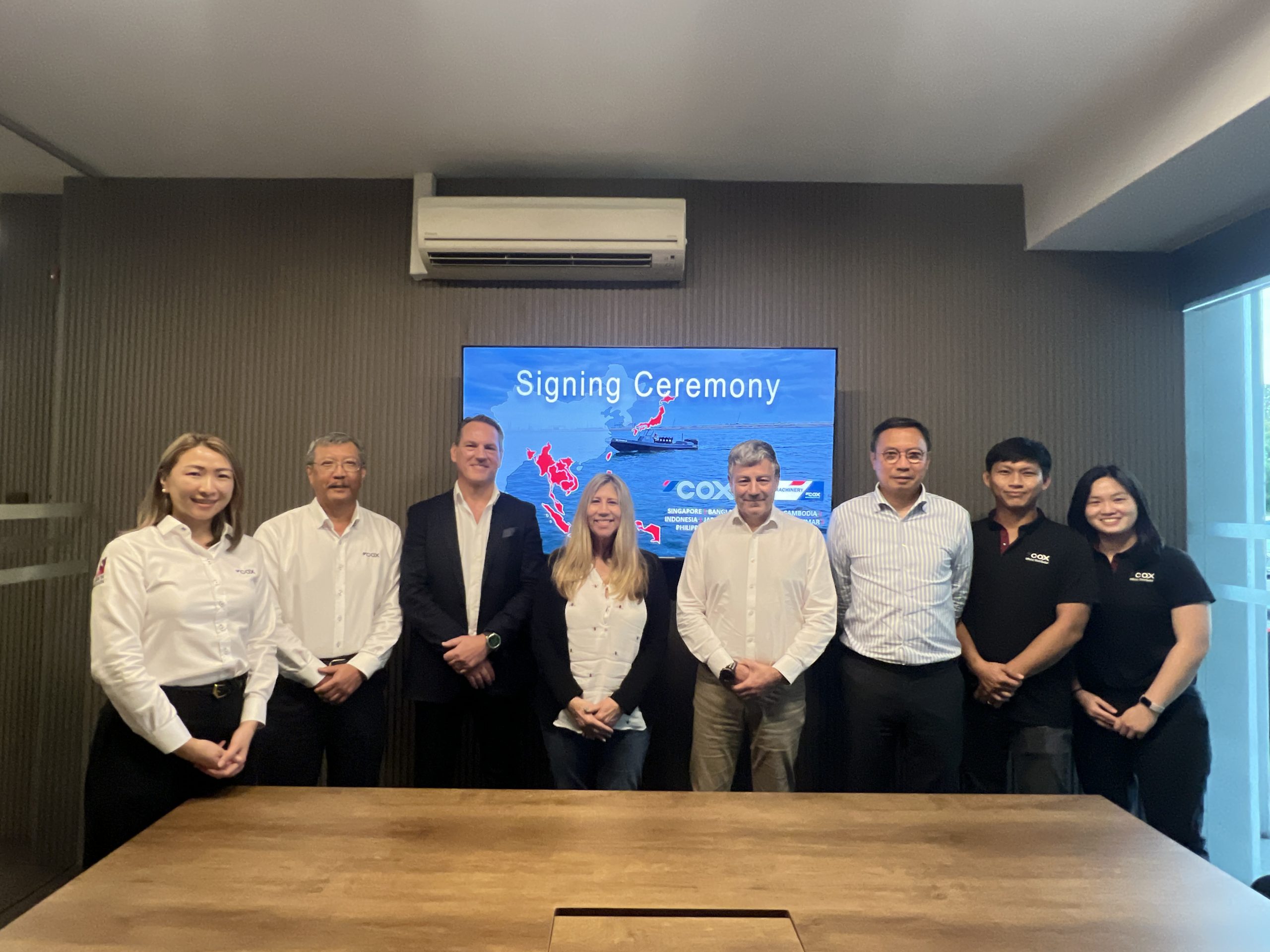Supporting the SHAPE UK initiative, a consortium looking to transition Portsmouth International Port into the UK’s first zero-emissions maritime hub, Cox introduces HVO fuel to its diesel-hydrogen outboard with fantastic effect.

Shoreham UK – 05 June 2023 – Following joining SHAPE UK in 2021, a consortium looking to transition Portsmouth International Port into the UK’s first zero-emissions maritime hub, Cox has been working with the University of Brighton on developing its dual-fuel hydrogen engine for operating within a port environment.
Taking the project to the next level in environmental sustainability, Cox has now introduced the use of Hydro-treated Vegetable Oil, or HVO as its more commonly referred to, to replace the standard diesel mixture, which can use as little as 15% of the fuel to ignite its hydrogen-powered outboard to provide 85% of the outboard’s propulsion.
In making the switch, Cox has calculated that the previous figure of reducing carbon emissions by 90% using standard diesel and green hydrogen has been surpassed, with the HVO-fuelled diesel-hydrogen outboard now recording a 98% reduction in carbon emissions compared to a pump diesel engine.
The dual fuel mixture supports the current market infrastructure, where limited hydrogen availability allows flexibility of operation and reduced risk of “stranded assets”.
The conversion and demonstration form part of the wider Shipping, Hydrogen & Port Ecosystems UK (SHAPE UK) project, which aims to demonstrate an achievable modular green hydrogen generation system within Portsmouth International Port (PIP). Maritime operations are paramount to the efficient movement of goods nationally and globally but are often high contributors to CO2 emissions and air pollutants. The adoption of decentralised energy systems offers the potential to support the necessary transition of ports and their operations to carbon net-zero operations.


